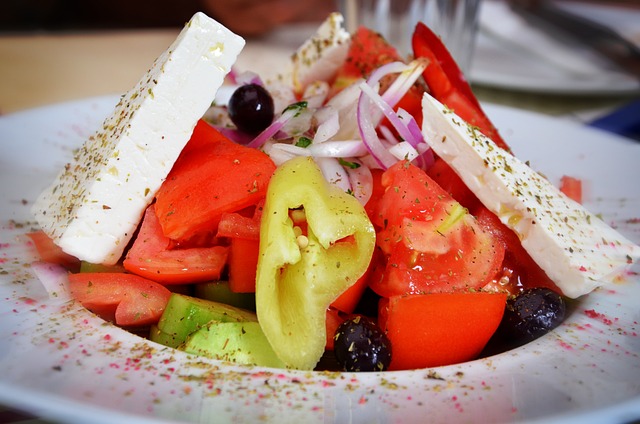The Mediterranean diet is a way of eating that is based on the traditional foods and lifestyles of the Mediterranean region. This diet has gained popularity in recent years due to its numerous health benefits and emphasis on whole foods and plant-based meals. In this article, we’ll explore the components of the Mediterranean diet, its health benefits, and tips for incorporating this way of eating into your lifestyle.
What is the Mediterranean Diet?
The Mediterranean diet is a plant-based diet that emphasizes whole, minimally processed foods. It is based on the dietary patterns of people who live in countries bordering the Mediterranean Sea, such as Greece, Italy, and Spain. The diet is characterized by high consumption of fruits, vegetables, whole grains, legumes, nuts, and seeds. It also includes moderate consumption of dairy products, fish, and poultry, and limited consumption of red meat and sweets.
Components of the Mediterranean Diet
- Plant-Based Foods: The Mediterranean diet is centered around plant-based foods such as fruits, vegetables, whole grains, legumes, nuts, and seeds. These foods provide a variety of vitamins, minerals, and fiber that are essential for good health.
- Healthy Fats: The Mediterranean diet is high in healthy fats, such as those found in olive oil, nuts, and fish. These fats have been shown to have numerous health benefits, including reducing inflammation and improving heart health.
- Lean Proteins: The Mediterranean diet includes moderate amounts of lean protein sources, such as fish, poultry, and legumes. These foods are rich in protein and other essential nutrients, while also being low in saturated fat.
- Limited Intake of Red Meat: Red meat is limited in the Mediterranean diet, with a focus on leaner protein sources such as fish and poultry. This is because high consumption of red meat has been linked to an increased risk of heart disease and certain types of cancer.
Health Benefits of the Mediterranean Diet
- Reduced Risk of Heart Disease: The Mediterranean diet has been shown to reduce the risk of heart disease by up to 30%. This is due to its emphasis on healthy fats, whole grains, and plant-based foods.
- Improved Brain Function: The Mediterranean diet has been linked to improved cognitive function and a reduced risk of Alzheimer’s disease.
- Reduced Risk of Cancer: The Mediterranean diet has been shown to reduce the risk of certain types of cancer, such as breast and colon cancer.
- Weight Management: The Mediterranean diet is a healthy way to manage weight, as it emphasizes whole foods and limits processed and high-calorie foods.
Incorporating the Mediterranean Diet into Your Lifestyle
- Start with Small Changes: You don’t have to completely overhaul your diet overnight. Start with small changes, such as incorporating more fruits and vegetables into your meals, using olive oil instead of butter, or trying a new whole grain.
- Make Plant-Based Foods the Focus: Build your meals around plant-based foods, such as fruits, vegetables, and legumes. This will ensure that you are getting plenty of nutrients and fiber while also reducing your intake of saturated fat and calories.
- Choose Healthy Fats: Opt for healthy fats, such as those found in olive oil, nuts, and fish. These fats have been shown to improve heart health and reduce inflammation.
- Limit Red Meat: Red meat should be limited in the Mediterranean diet, with a focus on leaner protein sources such as fish and poultry.
- Embrace Whole Grains: Whole grains, such as brown rice, quinoa, and whole wheat bread, are a staple of the Mediterranean diet. These foods are high in fiber and nutrients, and can help you feel full and satisfied.
- Add Flavor with Herbs and Spices: The Mediterranean diet is full of delicious flavors and aromas, thanks to the use of herbs and spices such as oregano, basil, and garlic. Experiment with different combinations of herbs and spices to add flavor to your meals without relying on salt or processed sauces.
- Enjoy Red Wine in Moderation: Red wine is often consumed in moderation as part of the Mediterranean diet. It is rich in antioxidants and has been shown to have health benefits when consumed in moderation.
Contraindications of the Mediterranean Diet
While the Mediterranean diet is generally considered a healthy way of eating, there are some contraindications to keep in mind. For example, people with certain medical conditions such as kidney disease or high blood pressure may need to modify the diet to meet their specific needs. Additionally, individuals who are allergic to certain foods, such as nuts or seafood, may need to avoid certain components of the diet.
Conclusion
The Mediterranean diet is a healthy and sustainable way of eating that has been linked to numerous health benefits. By incorporating more plant-based foods, choosing healthy fats, and limiting red meat, you can reap the benefits of this way of eating. As with any dietary change, it is important to consult with your healthcare provider before making any significant changes to your diet to ensure that it meets your individual needs and goals.
Image by Gordana Stanisic from Pixabay
Diet
-

Can Arthritis Sufferers Benefit From A Gluten-Free Diet?
The relationship between diet and health has led to increased interest in dietary interventions for various medical conditions, including arthritis. One such approach is adopting a gluten-free diet, which involves eliminating gluten-containing foods. This article explores whether going gluten-free can benefit individuals with arthritis, examining both potential advantages and drawbacks. Understanding Arthritis and Gluten Sensitivity…
-

How to Overcome the Allure of Processed Foods and Make Healthier Choices
-

Foods that Fuel Fatigue: Be Mindful of Your Diet to Boost Energy Levels
-

The Health Benefits of Dark Chocolate for the Heart
-

Unveiling the Health Benefits of Pickles and How to Find the Healthiest Options
-

Nourishing Your Bones: 6 Essential Foods for Osteoporosis Prevention
-

Stock Up with Healthy Snacks with These 10 Easy Tips









Leave a Reply